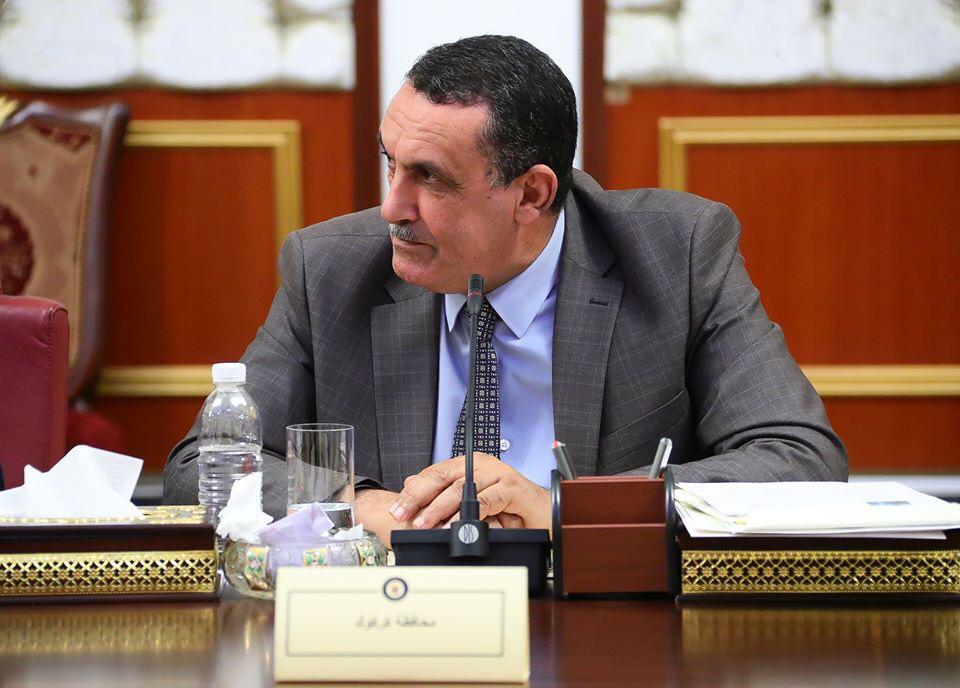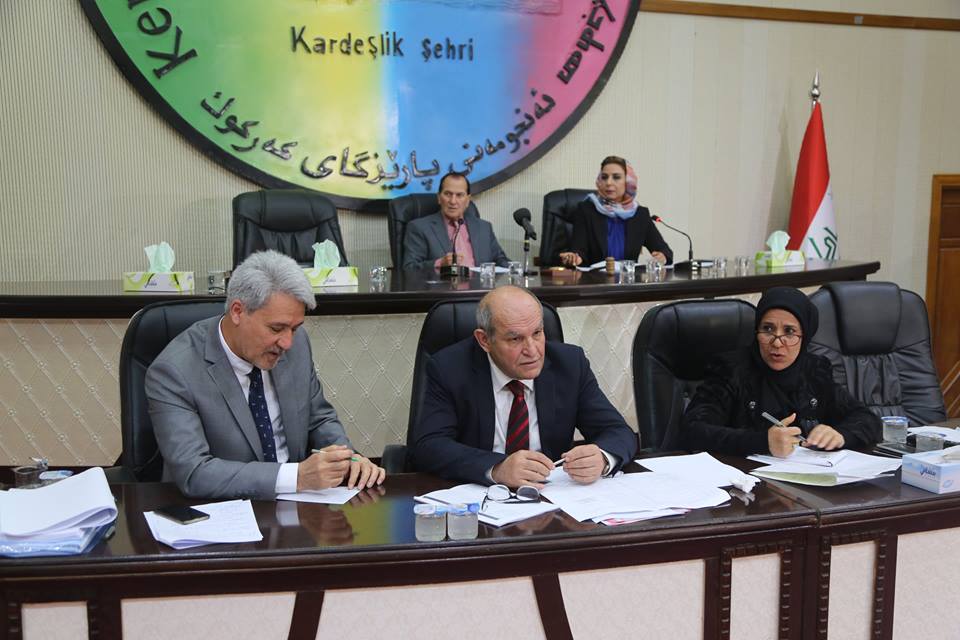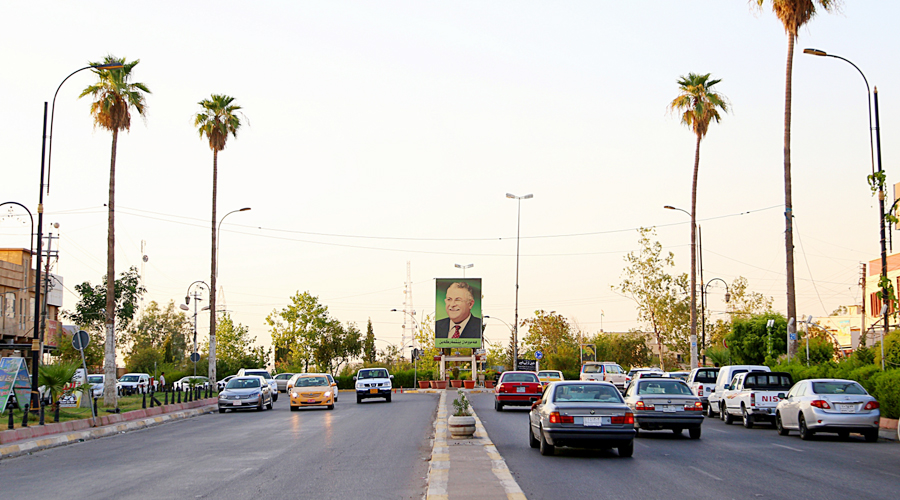The acting governor of Kirkuk has assigned a committee of the Kirkuk administration consisting of three people to follow up the implementation of decisions related to the distribution of administrative positions in the province in a balanced manner, a task that has moved between multiple committees for nearly 20 years without being completed.
After 2003, and based on a project put forward by the late Iraqi President and former Secretary of the Patriotic Union of Kurdistan, Jalal Talabani, it was decided to distribute administrative positions in Kirkuk province by 32% for each of the Kurds, Arabs and Turkmens, in addition to allocating 4% for the Christian component. The project was approved by the Kirkuk Provincial Council on July 28, 2009, yet it has not been fully implemented up today.
On January 26, 2022, Rakan Saeed al-Jibouri, Kirkuk’s acting governor, an Arab, announced the formation of a tripartite committee of Kirkuk administration and assigned it to follow up the task of distributing administrative positions in a balanced manner among the components of Kirkuk, down to the percentage of employees from each component in the state departments.
The committee is composed of Imad Khalaf Daham, legal advisor, Sirajuddin Shawkat, administrative advisor, and Diler Samad, media advisor at the Kirkuk governor office.
Committee member Diler Samad, who is from the Kurdish component, said, "The committee is scheduled to hold its first meeting this week to discuss the mechanism and procedures how to implement the governor's decision."
"We do not know how the mechanism for distributing administrative positions will be, but so far no political party has expressed observations or reactions regarding this step. For example, if there are 10 positions, then the Kurds, Arabs and Turkmen will each get three and the other position will go to the Christian component,” he added.
This comes at a time that, the status quo acting governor of Kirkuk addressed one of his aides last April to share the administrative positions in Kirkuk provincial council per 2009 agreement yet the Kurds oppose the attempt, saying the Arab governor aims at more positions for his affiliates.

Rakan Saeed Al-Jubouri, Governor of Kirkuk. Jibouri's Facebook page
The agreement concluded 12 years ago, outlined Kurds to take position of Kirkuk governor, Turkmen to preside the provincial council and Arabs as deputy. The agreement was implemented on the ground for those senior positions yet not covered other senior positions.
Under the letter directed by Rakan Saeed, the new administrative committee will be linked to a similar committee in Baghdad.
The previous parliamentary session witnessed the formation of a committee of representatives of the various components of Kirkuk, but the work of the committee was not materialized due to disagreements over the distribution of positions.
There are 20 key positions in Kirkuk provincial council and the governor aims to share it per 2009 agreement, a source in the media of Kirkuk provincial council earlier told KirkukNow.
Diler Samad said, "We will start our steps with department officials, after which we will move to determine the ratio of department heads and officials in all institutions, and the mechanism extends down to employees, meaning that the percentage of employees in departments must be balanced for each ethnicity."
"This work requires accurate data and statistics of the departments so that we can make a balance based on those statistics,” noting that “the process will be in the interest of all ethnicities.”
This endeavor comes at a time when only 10 days are left for Jibouri to determine his position on remaining in the post of Kirkuk governor or parliamentary work as he won a seat in last October General Elections.
According to the Parliamentary Elections Law, “The winning candidate in the parliamentary elections is obliged to take the constitutional oath within a maximum period of one month from the date of the first session (held on December 9).
Several political parties, most notably the Patriotic Union of Kurdistan PUK, aspire to assume the position of governor, and in the absence of provincial councils, the only way for these parties is for the Iraqi prime minister to assign someone to take over the position until the provincial elections are held.

Kirkuk, September 23, 2019: A meeting of dissolved Kirkuk Provincial Council. KirkukNow
The oil rich city of Kirkuk, Iraq's second largest oil reserves, is ethnically a mixed province of 1.7 million Kurds, Sunni and Shiite Arabs, and Turkmens. It has long been at the center of disputes between the federal government in Baghdad and the autonomous Kurdistan Regional Government KRG.
Kirkuk, 238 kilometers north of Baghdad, is the center of the disputed territories of Iraq that runs from Shingal in Nineveh province on the Syrian border southeast to Khanaqin and Mandali on the Iranian border.
The Kurds have been ruling Kirkuk following the toppling of Saddam Hussein regime in 2003 up to 2017. They wanted Kirkuk to become part of the Kurdistan region and launched a referendum in September 2017 but the move has been opposed by the Arab and Turkmen populations.
The referendum by the Kurds triggered Iraqi authorities to retake control over disputed territories after claiming victory over the so-called Islamic State ISIL end of 2017.





